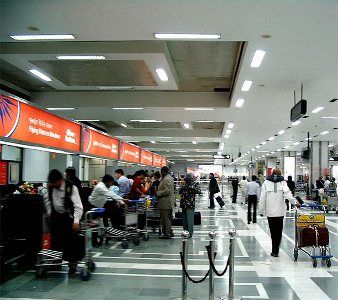Private-sector lobbying has led to long-term harm, notes Jitender Bhargava
 It is generally agreed that Indian aviation has failed to achieve the potential that the country offers.
It is generally agreed that Indian aviation has failed to achieve the potential that the country offers.
While most have attributed the industry’s lack of robustness to unclear government policies, high operational costs, and so on, few have ever cited the role of private Indian carriers in influencing policies.
Since such instances haven’t been tabulated, one is oblivious to the scale of havoc caused.
If quantified, the financial loss alone would run into crores of rupees besides the harm it has caused to the industry.
Perhaps the first instance of blatant interference in getting a policy tweaked was when the entry into the sector of the Tatas and Singapore Airlines was blocked in 1997.
The revised policy ensured that no foreign airline could invest in an Indian carrier even while Kuwait Airways and Gulf Air owned a 20 per cent stake each in Jet Airways.
The revised policy also gave Jet Airways time to buy back the stakes.
A couple of years later when Tata-Singapore Airlines submitted a proposal to acquire a 40 per cent stake in Air India, mischief was again in evidence.
Singapore Airlines was forced to opt out of the race citing opposition.
The intent was clear: an existing airline did not want a strong competitor in a rejuvenated Tata-Singapore Airlines-managed Air India.
Imagine: if a Tata-Singapore Airlines-managed Air India had indeed become a reality, taxpayers wouldn’t have had to fund the national carrier’s bailout at a cost of Rs 30,000 crore (Rs 300 billion).
Air India, under the new management, would also have been an airline to contend with and not what it has become today.
In the previous decade, the government, with Praful Patel as the civil aviation minister, saw the introduction of an irrational 5/20 policy.
This helped only one private airline at that time and barred others who did not possess five years of domestic flying experience and a fleet of 20 aircraft from taking to international skies.
The current aviation minister, Ashok Gajapati Raju, is now seeking to do away with it. For that particular airline, this policy meant a lot.
It could for some years reap the advantage of being India’s only international airline besides Air India, whose ethnic traffic it could encroach upon to fill up its flights.
If crony capitalism has been beneficial for some, it has also unwittingly taken a toll of at least one airline.
The 5/20 policy was a contributing factor in financially crippling Kingfisher.
In his quest to fly internationally without waiting to complete the requisite five years, Vijay Mallya bought over Air Deccan, which was soon becoming eligible for international operations, at a price that defied logic.
Kingfisher Airlines eventually perished under the weight of debt.
Air India was often ‘forced’ to withdraw flights from certain sectors by citing ‘economical unviability’.
It wasn’t a coincidence to see a private airline mount flights soon thereafter with market and passengers offered on a platter by the obliging national carrier.
No less intriguing has been studied silence of private airlines when seats were being recklessly doled out to foreign airlines though the policy was destined to harm them too, not just Air India.
And today, we have the situation of Indian carriers failing to make a mark on the international routes with foreign airlines not only having been given a head-start but also a stranglehold on Indian market.
The promoters of Indian carriers simply ignored the question of how their fund-starved carriers would compete on their home turf with mega global carriers bestowed with disproportionate quantum of seats and flights.
The way the Jet Airways-Etihad agreement was facilitated was yet another instance of external factors influencing a decision.
The government granted 37,000 additional seats to Abu Dhabi, over and above the existing 13,000 seats, to help Etihad acquire a 24 per cent stake in Jet Airways.
Even though other Indian airlines and airports, notably private-run airports at Delhi and Mumbai, realised how the Jet-Etihad combination and the accompanying huge quantum of seats would take away their business and harm their long-term interests, they did nothing except voicing concerns to the civil aviation ministry.
As if no lessons were needed to be learnt for putting the sector on track, some carriers have, in fact, facilitated their political masters’ wrongdoing.
When Gulf countries sought additional seats, some Indian carriers at the slightest prodding gave it in writing that they needed additional seats.
This helped build a case for doling out seats to foreign carriers while the records showed that the ministry was only acquiescing to the requests of Indian carriers.
These carriers haven’t used a single additional seat so far.
The mess that we witness today is thus not only a consequence of flawed government policies but also constant meddling and complicit silence of some Indian carriers.
Do they deserve sympathy for the poor financial state of their airlines?
Perhaps not, given the harm they have caused to the industry.
Jitender Bhargava, a former executive director of Air India, is the author of The Descent of Air India










